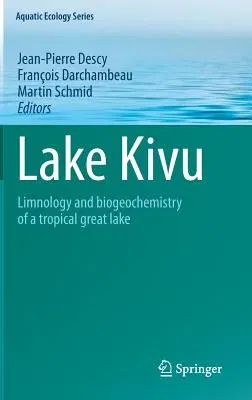Lake Kivu: Limnology and Biogeochemistry of a Tropical Great Lake (2012)Hardcover - 2012, 26 May 2012

Qty
1
Turbo
Ships in 2 - 3 days
In Stock
Free Delivery
Cash on Delivery
15 Days
Free Returns
Secure Checkout

Part of Series
Aquatic Ecology
Part of Series
Aquatic Ecology (Springer)
Print Length
192 pages
Language
English
Publisher
Springer
Date Published
26 May 2012
ISBN-10
9400742428
ISBN-13
9789400742420
Description
Product Details
Book Edition:
2012
Book Format:
Hardcover
Country of Origin:
NL
Date Published:
26 May 2012
Dimensions:
23.11 x
15.75 x
1.78 cm
ISBN-10:
9400742428
ISBN-13:
9789400742420
Language:
English
Location:
Dordrecht
Pages:
192
Publisher:
Weight:
544.31 gm